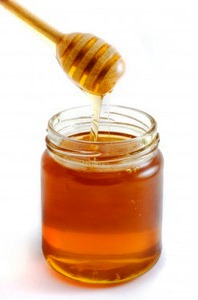
It’s another New Year, which means many people have vowed to start living healthier lifestyles. Some want to lose weight and get fit, while others simply want to be healthier in general and make better choices.
You’d think that getting on track to a healthier lifestyle would be easy with all of the health products jamming store shelves these days. Well, you may want to think again—many of these products may not be as healthy as they claim. These can be a pretty big waste of money for many people, and even a health risk for some.
1. Cough & Cold Medicines
At the first signs of the sniffles, many people’s first reaction is to reach for the cold medicine. Healthcare professionals are now wondering, though, if health products like over-the-counter cold medications really do any good at all. In some cases, it can even prolong an illness. Giving cough and cold medicine to children may even be dangerous. Even my pediatrician told me a few years back that giving cough and cold medicines to children do little more than ease a parent’s mind. She’s also not too keen on dispensing antibiotics unless she’s absolutely sure of a bacterial infection and that my kids need them. Come to think of it, that’s probably why she’s still our pediatrician…
2. Vitamins and Supplements
You religiously pop a handful of vitamins and supplements every day, but do they really do any good? Some researchers think not. Expensive vitamins probably aren’t a completely useless waste of money, but they may not be necessary. You can usually make some changes to your diet to get necessary vitamins and minerals from food, which are usually more easily absorbed by the body.
3. Diet Foods & Fads
Lots of people want to lose weight, and some companies do their best to cash in on this by producing miracle “health products” that can help. The fact of the matter is, weight loss supplements are a waste of money and are usually anything but healthy. The same is true for processed and packaged diet foods, which are usually packed full of sodium or sugar, not to mention expensive. Some food manufacturers also try to cash in on fad diets by producing seemingly healthier versions of regular foods. So, unless a diagnosed health condition requires you to stick to a special diet, chances are hyped up fad diet products like gluten-free everything are nothing more than a waste of money for you.
4. Organic Foods
A recent Stanford University study have found that organic foods, which are sometimes twice as expensive than their non-organic counterparts, my not be all that much healthier. Organic foods typically have no more nutritional value than non-organic foods. What’s more, organic foods aren’t always 100% free of pesticides and other harmful chemicals. If you’re still stuck on the health benefits of organic produce, though, the best way to get it is to grow it yourself.
5. “All-natural” Food Labels
Do you know what guidelines food packagers and manufacturers must follow to add the term “all-natural” to the outside of a bag or box? Well, neither does the Food and Drug Administrations (FDA), because they have not “developed a definition for use of the term natural or its derivatives”. In reality, you’re probably shelling out extra money for nothing more than a couple of words.
6. Gym Memberships
A gym membership can rack up a hefty bill each month. Many gym memberships and fitness programs also involve contracts that require a burdensome financial commitment. Remember, you can exercise for free! You can just as easily walk, run, do yoga, and do sit ups at home, and it won’t cost you a dime in most cases. If it’s the social aspect you crave, ask a friend or two to join you for a walk.





